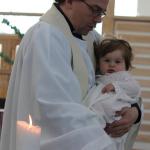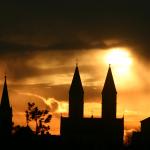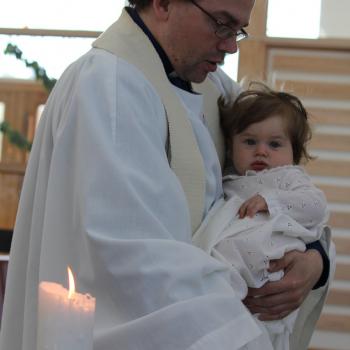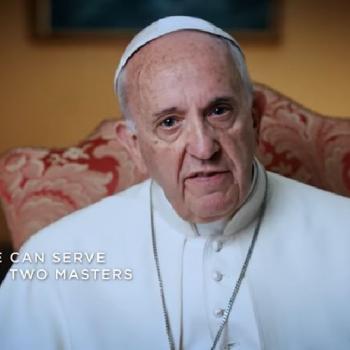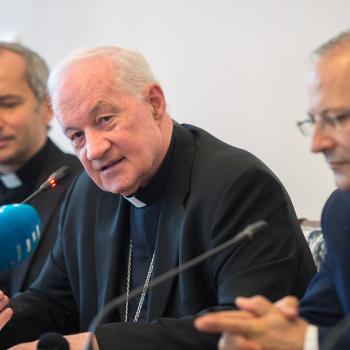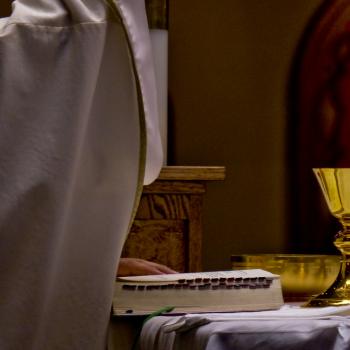Here we are a week and a day after the controversial Catalonian vote for independence from Spain. A fine moment in which to take stock of the reactions the plebiscite has gathered within the Spanish Church.
Cardinals Carlos Osoro and Juan José Omella:
The archbishop of Madrid and archbishop of Barcelona, respectively, have taken on the roles of mediators between the central and regional governments. On October 3 both prelates were summoned to Moncloa, the residence of the Spanish Prime Minister Mariano Rajoy. Omella met the next day too with the Catalonian deputy President, Oriol Junqueras, in the presence of the abbot of Montserrat, Josep Maria Soler.
The Spanish Bishops’ Conference:
Osoro and Omella have taken a more proactive role as mediators in the conflict. The Spanish national Bishops’ Conference, on the other hand, has taken as its official position a more “wait and see” approach. Just days before the vote, on 27 September, the body issued a statement calling for “honest and generous dialogue” and for “calm and understanding”.
Demetrio Fernández and Jesús Sanz:
While Osoro and Omella are busy building bridges between Madrid and Barcelona, some other prelates seem intent on sabotaging whatever chance for understanding might remain after the plebiscite. Two examples are the bishop of Córdoba, Demetrio Fernández, and the bishop of Oviedo, Jesús Sanz.
The day after the vote Fernández warned not only that with the vote in Catalonia “the homeland is in danger”, but also that patriotism is an attitude required by the fourth Commandment.
Sanz, for his part, denounced in a newspaper interview the lies, corruption, misappropriation of resources and indoctrination that have fed the Catalonian independence movement over decades. He concluded that dialogue with liars is not only impossible but also immoral.
Francesc Pardo and Salvador Giménez Valls:
The same day on which Fernández, bishop of Córdoba, sounded his call to arms to defend the homeland, Francesc Pardo – the bishop of Girona, in Catalonia – lamented the “violence that the people of Catalonia suffered” on voting day. An occasion on which citizens simply wanted “to express their opinions freely and peacefully”. Pardo’s regret for the violence on October 1 – which saw nearly 900 people injured in clashes with anti-riot police all over Catalonia – has since been echoed by the likewise Catalan bishop of Lérida, Salvador Giménez Valls. Valls has also called for the respect of the “ideological plurality” of his flock in consonance with the “message of peace” of the Gospel.
Xavier Novell:
While Pardo and Giménez Valls have openly expressed, in this way, their sympathy for the Catalonian independence movement, neither have gone so far as Xavier Novell. The bishop of Solsona was the only Spanish prelate who actually went to a polling booth on voting day to make his opinion count.
But what about the Spanish priests and laity? Where are they positioned in the Catalonian independence fight?
The ‘400 Catalan priests’ manifesto:
400 Catalan priests and deacons—one in five of the clerics of the region—signed a manifesto the week before the plebiscite calling on the central government in Madrid to “stop the repression” and “allow the referendum” with the due democratic guarantees.
Cristians per la independència:
On September 18, a group of laypeople represented by the group “Cristians per la independència” argued in a manifesto that “the right of peoples to self-determination… is part of the social doctrine of the Church, which equates it with fundamental human rights and argues that it’s a legitimate claim to make in the name of justice and the dignity of the poor”.
Catalan Christian organizations:
The day before the manifesto of the Catalan priests, on September 21, a dozen Christian organizations in Catalonia published a communique in which both religious men and women and lay people reaffirmed their “support of the institutions of Catalonia”. They also censured the interventions of the Spanish state in the region, calling them “anti-democratic and anti-rule of law”.
Benedictine and Cistercian congregations:
Unusually too – but in a sign of the unprecedented uncertainty the Catalonian independence vote has plunged the country – the Spanish Benedictine and Cistercian congregations also issued a declaration in the lead-up to the vote. They criticized the “infringement of the rights of the Catalonian government and people” that had been occasioned by the suspension of the referendum by the country’s Constitutional Court.
The take-away:
Certainly there have been other ecclesiastical contributions to the debate on Catalonian independence, which, it bears remembering, is expected to reach a head this Tuesday afternoon. At that time, the Catalonian president, Carles Puigdemont, will outlines to the Catalan parliament the next steps to be taken on the road to independence.
Yes, the choice for independence topped 90% of the votes cast in the ballot Sunday last… but taking account of the fact that participation was at a measly 43% of the census, it seems that really only about 39% of Catalans are in favor of breaking away definitively from Spain at this time and under these conditions.
What role should the Church play, then, in such a divided – and rancorous – society? Should it play the peacemaker, like Osoro and Omella? The forceful champion of national unity, like the bishops of Córdoba and Oviedo? Or the Good Samaritan – worried for those injured along the way – like the bishops of Gerona and Lérida? As always, it is in fact the laity who have shown the bishops the way to go. For isn’t it more conducive for a definitive solution to the conflict – for nearly any conflict – for the people to vote, freely, than to have bishops mediating with politicians or prophets banging on from pulpits?

